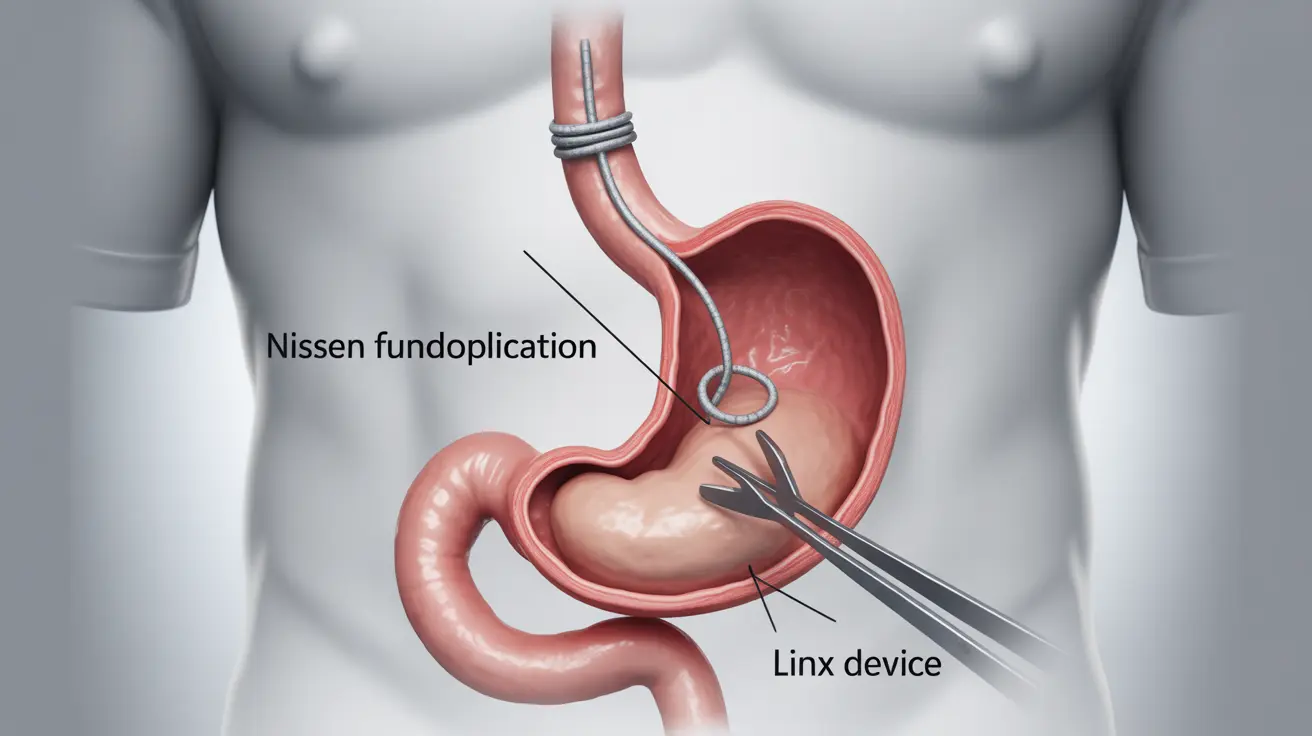For individuals struggling with severe gastroesophageal reflux disease (GERD) that doesn't respond well to medication, surgical intervention may offer a path to lasting relief. Understanding the available GERD surgery options is crucial for making an informed decision about treatment. This comprehensive guide explores the various surgical procedures, their benefits, and what to expect during recovery.
Understanding GERD and When Surgery Becomes Necessary
GERD occurs when stomach acid frequently flows back into the esophagus, causing persistent heartburn and other uncomfortable symptoms. While lifestyle changes and medications are typically the first line of treatment, some patients may require surgical intervention when:
- Medications fail to control symptoms effectively
- Long-term medication use is concerning
- Complications like Barrett's esophagus develop
- Quality of life is significantly impacted
Main Surgical Procedures for GERD
Laparoscopic Nissen Fundoplication
This procedure remains the gold standard for surgical GERD treatment. During the operation, the surgeon wraps the upper portion of the stomach (fundus) around the lower esophagus, creating a new valve mechanism that prevents acid reflux. The laparoscopic approach offers several advantages:
- Minimal incisions
- Shorter hospital stay
- Faster recovery time
- Proven long-term effectiveness
LINX Device Implantation
A more recent innovation in GERD surgery, the LINX system consists of a flexible ring of magnetic beads placed around the lower esophageal sphincter. This device helps prevent reflux while still allowing food to pass through normally. Key benefits include:
- Reversible procedure
- Preserved ability to belch and vomit
- No alteration of stomach anatomy
- Quick return to normal diet
TIF (Transoral Incisionless Fundoplication)
This newer, minimally invasive procedure creates a partial fundoplication through the mouth, avoiding external incisions entirely. It may be suitable for patients with less severe GERD who want to avoid more extensive surgery.
Recovery and Post-Surgery Care
Recovery time varies depending on the chosen procedure, but most patients can expect:
- 1-3 days hospital stay for traditional procedures
- 2-6 weeks for full recovery
- Gradual return to normal activities
- Dietary modifications during healing
Long-Term Outcomes and Benefits
Successful GERD surgery can provide significant benefits, including:
- Reduced or eliminated dependence on acid-reducing medications
- Improved quality of life
- Prevention of long-term GERD complications
- Better sleep and dietary freedom
Frequently Asked Questions
What are the main surgical options available for treating severe GERD when medications don't work?
The main surgical options include laparoscopic Nissen fundoplication, LINX device implantation, and TIF procedure. These options vary in invasiveness and approach, with fundoplication being the most traditional and proven method.
How does laparoscopic Nissen fundoplication compare to the LINX device for GERD surgery?
Nissen fundoplication involves wrapping the stomach around the esophagus and is generally more invasive but has longer-term data supporting its effectiveness. The LINX device is less invasive, reversible, and preserves normal bodily functions but is a newer procedure with less long-term data.
What are the common risks and side effects after GERD surgery like fundoplication or LINX implantation?
Common side effects may include temporary difficulty swallowing, bloating, and inability to belch or vomit normally. Risks include infection, bleeding, and potential device complications with LINX. Most side effects resolve within a few months.
How long does recovery typically take after minimally invasive GERD surgery?
Recovery typically takes 2-6 weeks, depending on the procedure. Most patients return to work within 1-2 weeks after laparoscopic surgery and can resume normal activities gradually as comfort allows.
Can GERD surgery help avoid long-term use of acid reflux medications like proton pump inhibitors?
Yes, successful GERD surgery often allows patients to reduce or eliminate their dependence on acid-reducing medications. Studies show that many patients can stop taking proton pump inhibitors completely after surgery.




